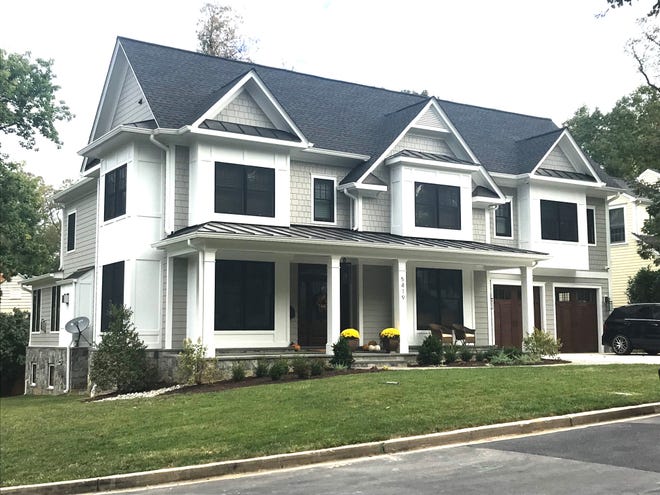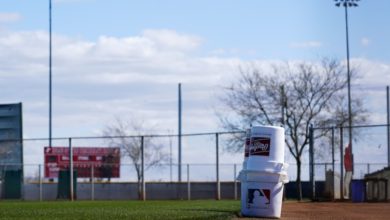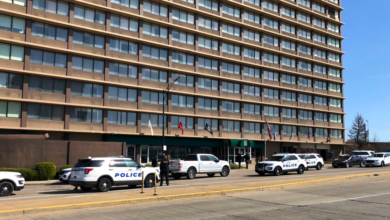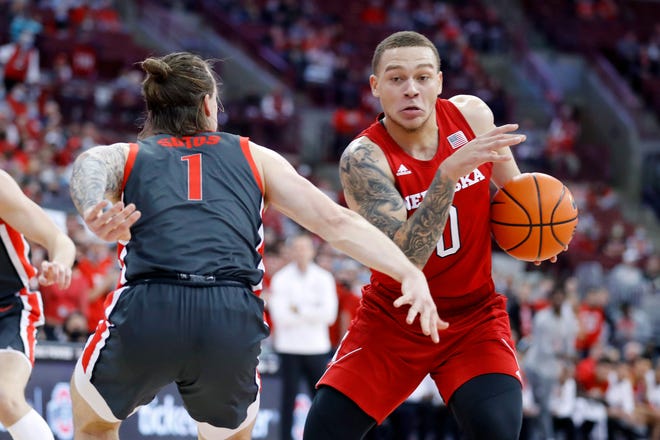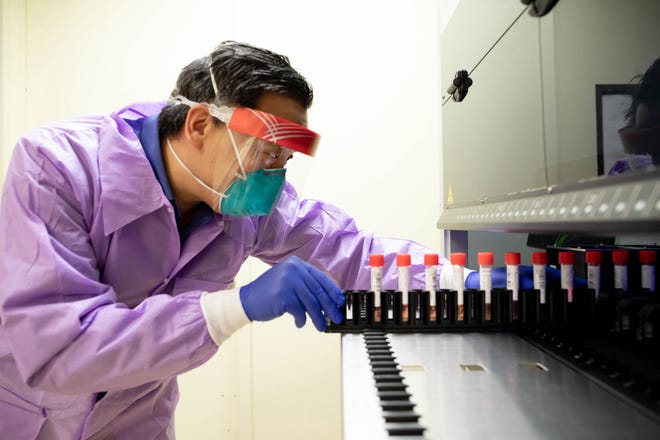
SAN FRANCISCO — The first case of the coronavirus omicron variant in the United States was confirmed at 4 a.m. Wednesday after an all-night session by scientists here.
The city's tightly connected network of public health and university medical center researchers worked together to confirm an infection reported six days earlierwas indeed omicron. As soon as the results came in, they were quickly communicated to the Centers for Disease Control and Prevention.
The case began on Nov. 22, when a traveler flew into San Francisco International Airport from South Africa, California Gov. Gavin Newsom said at a news conference.
The person, a San Francisco resident who was not identified, did not develop COVID-19 symptoms until Thanksgiving Day. Two days later, on Nov. 28, they were tested and got the results back the next day. Positive.
Despite feeling ill, they went out of their way to contact the San Francisco Department of Public Health to alert officials about the positive test, and that they had recently been in South Africa.
“They did the right thing and got tested and reported their travel history,” Dr. Grant Colfax, the city’s director of public health, said at the news conference.
The person had received the full two-dose course of the Moderna vaccine but no booster. They had mild symptoms and have recovered but are still self-quarantining. Public health officials have reached out to close contacts, all of whom have so far tested negative, the CDC said.
Because the patient had come from South Africa, which has a large number of known omicron cases, the city’s medical community was on high alert for cases among recent arrivals from that country.
“I heard about it yesterday at about 3 p.m.,” Dr. Charles Chiu said Wednesday. His laboratory at the University of California, San Francisco, did the analysis. Chiu is an infectious disease specialist and director of the UCSF-Abbott Viral Diagnostics and Discovery Center.

A nose swab sample from the patient arrived at 10 p.m. Tuesday, and Chiu’s lab ran a very fast molecular test that looked for what’s known as an S gene dropout, where the spike gene isn’t detected on the test.
The test came back within two hours and showed the person had been infected with a drop-out variant. The S genedropout is found with both the alpha and omicron coronavirus variants, so the test only indicated it might be omicron, but didn't prove it.
“To confirm this finding, we needed to sequence the viral genome,” said Chiu. Using a pocket-sized gene sequencer, his lab assembled the variant’s entire genome within eight hours.
At 4 a.m. in San Francisco, the results were in and the first case of omicron was discoveredin the United States. The CDC was alerted within two hours.
Officials caution it’s unlikely the case was the country's actual first, simply the first identified.
“We knew that it was just a matter of time,” said Dr. Anthony Fauci, the U.S. government’s top infectious disease expert.
Contact Elizabeth Weise at [email protected]
Source link


